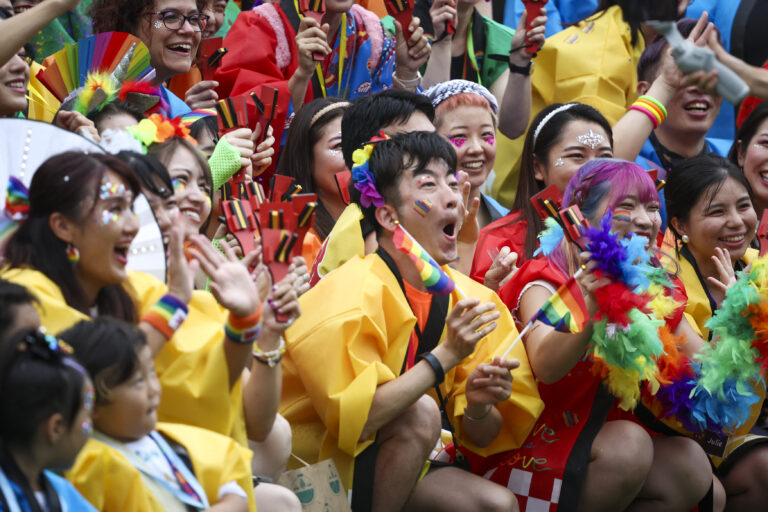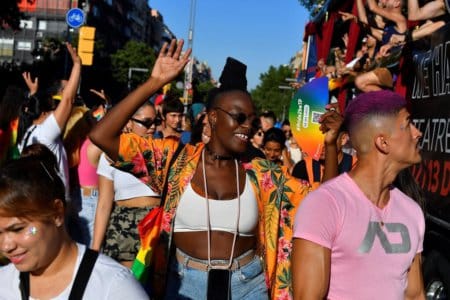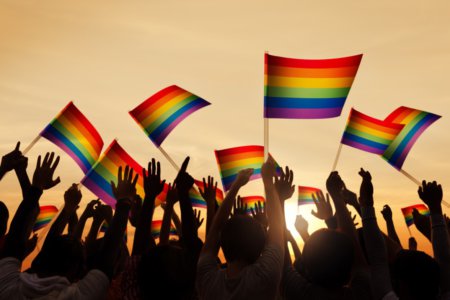
LGBTQ+ international students in Australia are expressing fear in disclosing their queer identities, as they are afraid the truth will alienate them from their peers, faculty, and even the government.
Xin Hu and Catherine Flynn, researchers at Monash University in Australia, recently conducted a study with queer international students which explored their experiences and barriers when accessing support, especially in terms of their mental health. Xin Hu is also a gender-fluid identifying migrant from China with lived experience as a queer international student.
Primary data collection from the interviewees was done via in-depth interviews, both face-to-face and online, with the first author. Snowball sampling, where data was taken from other research subjects recruited by the primary subjects, was also gathered via flyers to local universities, LGBTQ+ services, International Student support services, and social media channels.
Three Asian students spoke about facing difficulties with expressing their identities even while seeking support. The first, a transgender lesbian from South East Asia, confessed that she initially feared that her conversations with her counsellor would be recorded.
“She felt she had to challenge this internalised censorship and fear by herself, until confidentiality was explained to her after commencing counselling, and perceiving the counsellor to be ‘queer-friendly,’” the report said.
Another Asian LGBTQ+ international student, who identified as non-binary, said that they feared being discriminated against by the Australian government when applying for residency in the country. Even the person who reviewed their application mattered because it could make a big difference in terms of approval.
“During their time as an international student in Victoria, [they] did not disclose their queer identity to campus-based counsellors, although they had multiple counselling sessions,” the report said.
As a result of religious teachings on queer identities, they have considered conversion therapy, something mainstream mental health, medical, and educational organisations do not support.

International students may be in for a shock when they experience their first ever Australian gay pride parade. Source: AFP
Maybe Australia isn’t the safe haven these LGBTQ+ international students thought it was
Although Australia has always ranked highly as an LGBTQ-friendly country for international students, the study also found that students struggled with more than just interacting with staff or government officials. It’s not just international students either – local students also face disproportionate challenges in contrast to their heterosexual peers when it comes to interactions, education, and their career.
Despite Australia having a more open culture when it comes to the topic of sexuality and mental health compared to more conservative countries, students said they found it hard to manage difficult attitudes from both their Australian peers, and their family or peers back home.
The third student, a gay cisgender male from East Asia, said he felt a “distinction between me and the culture here, that somehow makes me feel often marginalised further because I’m trapped in between.”
Similarly, other LGBTQ+ international students in the study attempted to find community with their straight peers, but the researchers found that it could end up as a stressor for some.
Some LGBTQ+ international students strictly use their new identities with people they feel safe with while in Australia, but choose to fall back on their old identities when they are within their own cultural or ethnic group due to dominant anti-LGBTQ+ ideologies.
This can be particularly difficult for students from the Asian-Pacific region, as many countries still criminalise homosexual activity. Indonesia has regulations that affect the LGBTQ+ community — two Indonesian soldiers were jailed for seven months for having gay sex, and members of the police and military have been fired for doing the same.
Taiwan has legalised same-sex marriage since 2019, with Thailand doing the same in 2024, but that doesn’t mean traditional cultural values aren’t still deeply rooted within these communities.
Discrimination exists within queer communities as well, as experienced by another transgender student.
“There was none who I could resonate with or could resonate with me… Discriminated [against through] ageism, and I’m trans, a trans person of colour so… [the message was] you don’t belong here,” she told the study.
She’s not alone in facing struggles from the university. Other LGBTQ+ international students, especially those over 25, also faced problems seeking support in terms of financing, visas, studying, and mental health – campus intake staff would simply redirect them for certain issues. Rather than finding help, they are battling stressors.
The study concludes that there is a critical need for universities to review their existing policies, especially regarding LGBTQ+ international students. Those from other countries will require diversified forms of support.
“For instance, LGBTQ+ international students may need a social space where they feel safe to express their full identities and make social connections, and such information should be visible in faculties that have a high level of international student enrolment,” the study said.
“Campus-based support need to build service capacity to address international students’ social and personal experiences beyond individual academic performance, especially focusing on the common mental health challenges that IS cohorts experience while transitioning to the host country. Cultural familiarity and safety are essential.”









